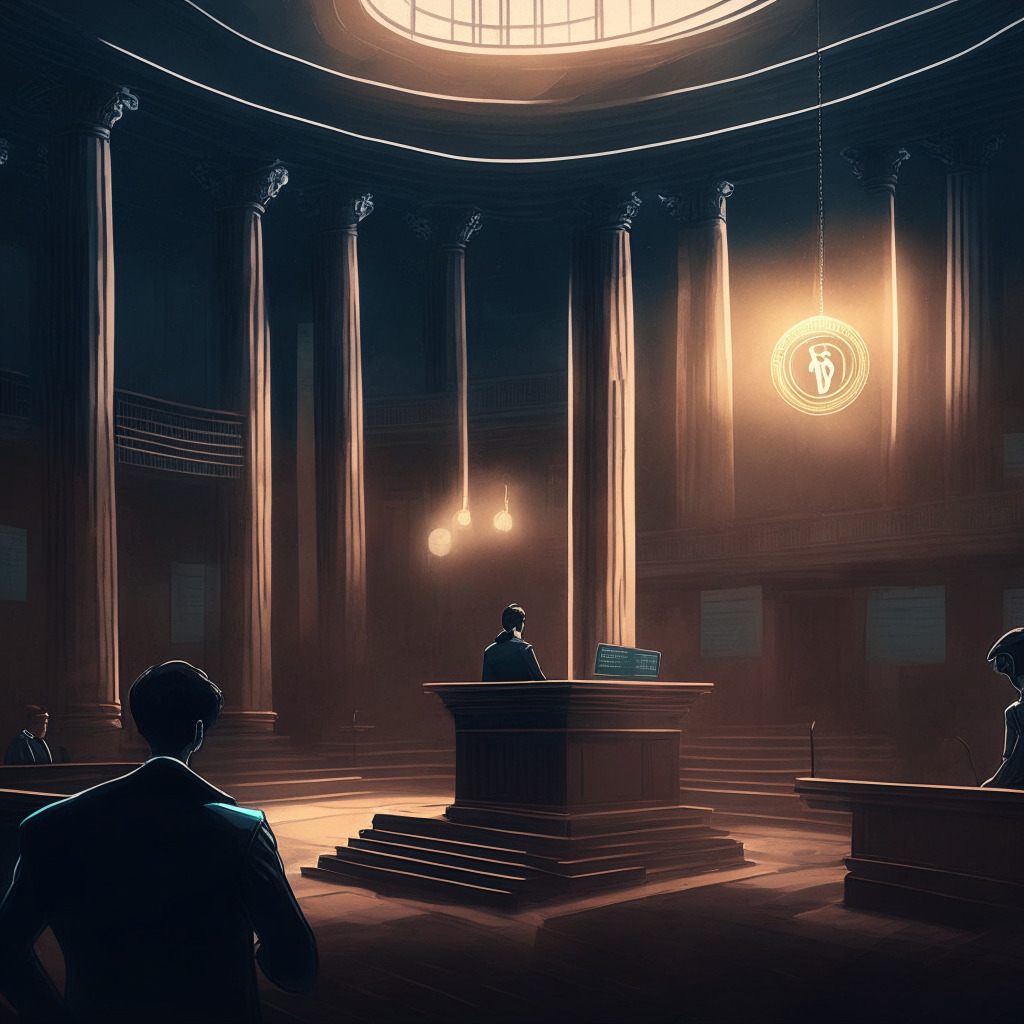In what can be viewed as a cautionary tale for blockchain innovators, U.S. prosecutors are calling for the imprisonment of Sam Bankman-Fried, the founder of FTX, ahead of his scheduled trial in October. This action arises from allegations that Bankman-Fried has tried multiple times to tamper with witness testimonies.
The controversy comes after Bankman-Fried shared diary entries from former Alameda Research CEO Caroline Ellison with the New York Times. Prosecutors interpreted this move as a blatant attempt on Bankman-Fried’s part to harass and coerce Ellison and potentially manipulate her trial testimony, or perhaps even discourage her from testifying altogether. The notion of business confidences being aired in public forums might even dissuade possible witnesses from offering their evidence, thus skewing the court proceedings.
Bankman-Fried’s defense team argues their client is merely availing of his right to defend his name in public. To this, the prosecutors responded by clarifying that while such a defense is warranted, Bankman-Fried’s leaking of private writings doesn’t fall under the category of fair commentary. This incident, they believe, falls into a pattern where Bankman-Fried allegedly seeks to unfairly sway the outcome of a trial through a public shaming campaign and harassment of witnesses.
So, while the right to defend oneself publicly is fundamental to our legal process, the current situation illustrates where that right ends and the potential to corrupt a trial begins. Blockchain leaders like Bankman-Fried must tread carefully to safeguard this crucial balance. Cases such as these underline the need for stringent regulations to create a fair and transparent environment in the blockchain society, while at the same time underscoring the importance of freedom to innovate.
The final decision on this matter now rests squarely on the shoulders of Judge Lewis Kaplan of the District Court for the Southern District of New York. Meanwhile, the defense in this stark courtroom drama staring the blockchain industry has until Tuesday to respond to the prosecution’s case.
As this legal situation unfolds, it will surely be a closely monitored event in the blockchain community, considering Bankman-Fried’s trial is not slated to commence until October 2, 2023. The final outcome will doubtlessly set a precedent with implications that could reverberate within the blockchain space for years to come.
Source: Coindesk




